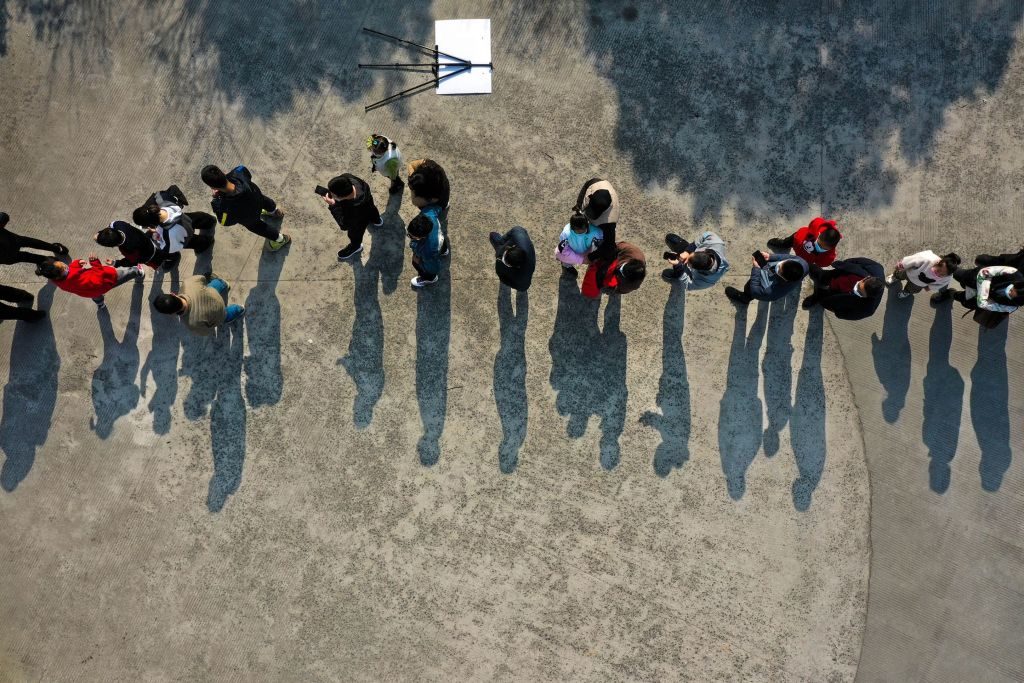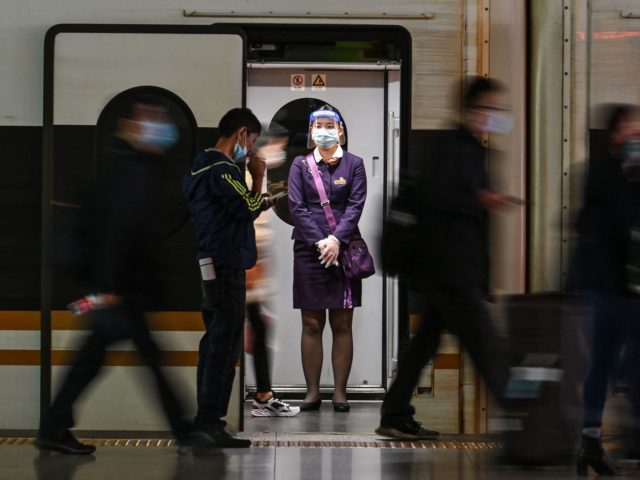Local Chinese Communist Party (CCP) officials in Zhejiang, a province neighboring Shanghai, ordered residents to “limit family gatherings to ten people” on Monday in an effort to contain the province’s surging Chinese coronavirus caseload, the online magazine Sixth Tone reported.
“Sun Liming, deputy director of Zhejiang Health Commission, said the province will implement strict control over social gatherings, cultural events, and conferences,” according to Sixth Tone. “Officials are urging residents to limit family gatherings to 10 people, while restricting indoor entertainment venues and restaurant dining to a 50 percent capacity.”
Shanghai’s local Communist Party committee oversees Sixth Tone’s operation through the Chinese state-run Shanghai United Media Group, which owns the online publication.
Three of Zhejiang’s main cities — Ningbo, Hangzhou, and Shaoxing — reported a combined total of 138 new coronavirus cases between December 6 and December 13. The three cities accounted for 74 of the 80 coronavirus cases documented in Zhejiang on December 12, “with most cases concentrated in Shaoxing and Ningbo, respectively,” provincial health authorities told reporters at a press conference on Sunday.

People waiting to undergo nucleic acid tests for the Covid-19 coronavirus during a mass testing in Ningbo, in eastern China’s Zhejiang province on December 7, 2021. (STR/AFP via Getty Images)
The Chinese Communist Party has stood accused of significantly undercounting coronavirus cases since the pandemic began in central Wuhan in late 2019. Local eyewitnesses, some detained for crimes like “provoking trouble,” claimed hospitals turned away people with overt signs of respiratory disease to avoid testing them and adding to official numbers.
Local communist officials in Zhejiang said Sunday the coronavirus infections logged in Shaoxing and Ningbo so far “were largely attributed to separate gatherings.”
“The first 18 people to test positive for the virus in Shaoxing had all attended a funeral, while multiple infections in Ningbo were found to be linked with a moxibustion center,” Sixth Tone reported on December 13.
Moxibustion is a form of physical therapy performed by practitioners of traditional Chinese medicine (TCM). The practice consists of “burning small cones of dried leaves on certain designated points of the body, generally the same points as those used in acupuncture,” according to the Encyclopedia Britannica.
The Chinese city of Shanghai, which borders Zhejiang province, tightened its own anti-virus measures on December 8 in an effort to prevent Zhejiang’s latest coronavirus outbreak from spreading to the strategically important Chinese finance hub. Shanghai is China’s most populous urban center and is considered the most populous city proper in the world. The metropolis boasts a population of nearly 25 million.

Residents undergo nucleic acid tests for the Covid-19 coronavirus in Ningbo in China’s eastern Zhejiang province on December 8, 2021. (STR/AFP via Getty Images)
Shanghai city officials suggested last week residents avoid traveling out of the municipality. They further discouraged “family gatherings during the Lunar New Year, which this year falls between the end of January and early February,” according to Sixth Tone. The Lunar New Year is China’s single most important holiday.
The Shanghai Municipal Health Commission issued a press release on December 8 urging all of the city’s residents “not to organize annual meetings, festivals and other gatherings of people during the New Year’s Day and Spring Festival [February 1].”
“The general public is also reminded to try not to go to crowded places, do not gather, do not get together, and take personal protection [sic],” the notice read.
“[It is] not necessary to leave Shanghai,” the commission added.

COMMENTS
Please let us know if you're having issues with commenting.